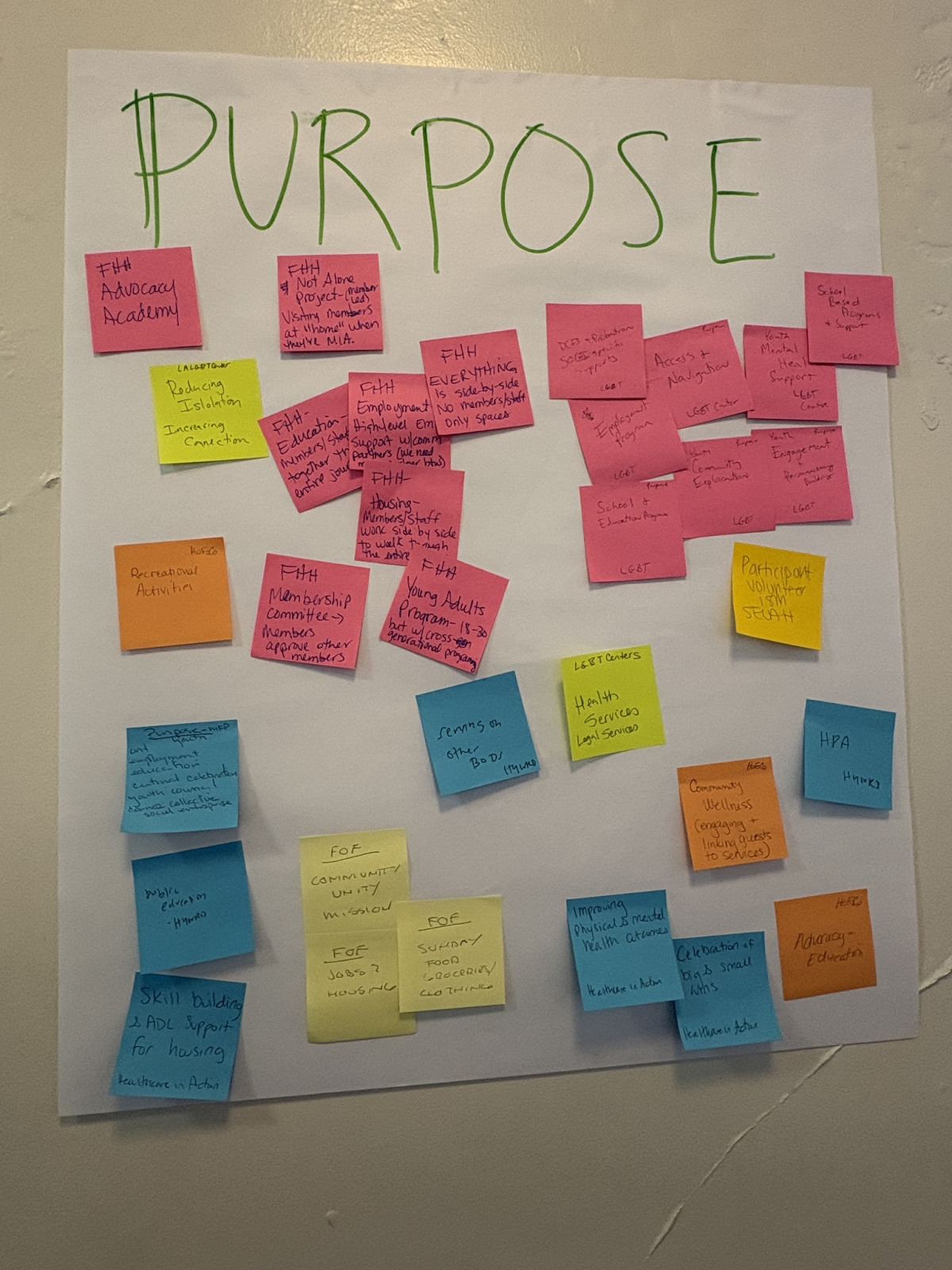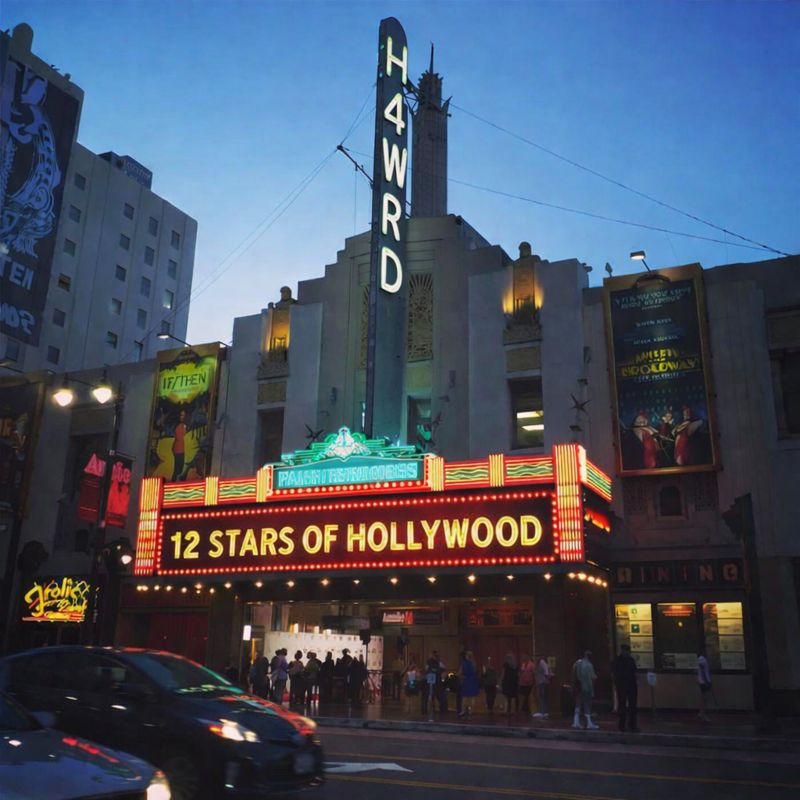Community Spotlight: Andrew Froemming -- The Origins of a Community Hub
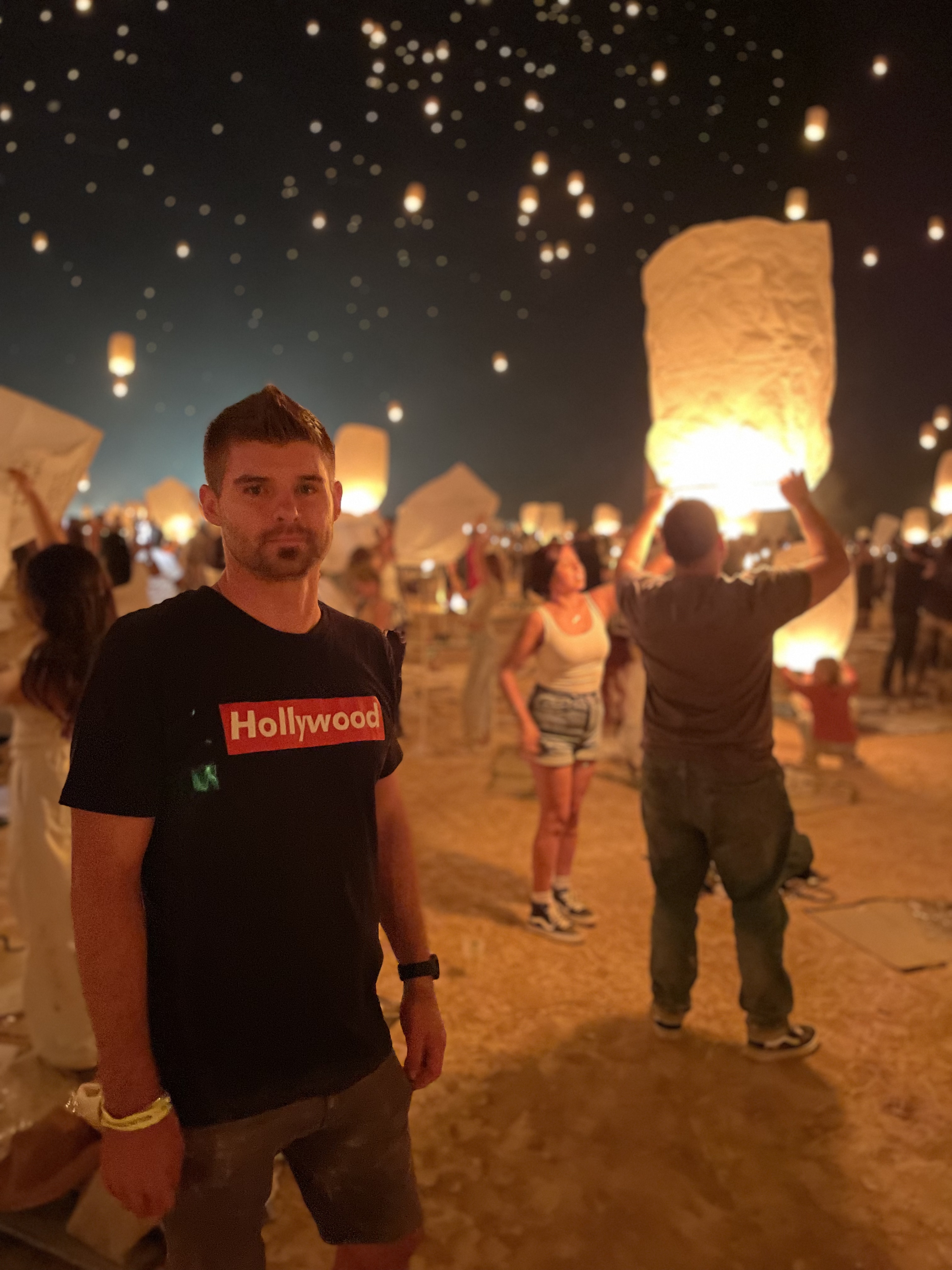
Go West Young Man
When Andrew Froemming moved to Hollywood from rural Minnesota, he had no idea he was embarking on a journey that would lead him to build one of the most trusted and enduring hubs of care for people experiencing homelessness in our community.
Andrew was raised in a tight-knit and sheltered religious community where homelessness was "practically invisible." So when he came to L.A. in 2012 following a cross-country visit — and a surprise job offer — from the Hollywood Adventist Church, he was shocked by the homelessness crisis he found here. “I’d never seen encampments like the ones under the 101,” he remembers. "It was jarring.”
“Fear can be a big thing. If you don’t understand people, you can be afraid of them. Humanizing people is powerful — that’s how I got started.”
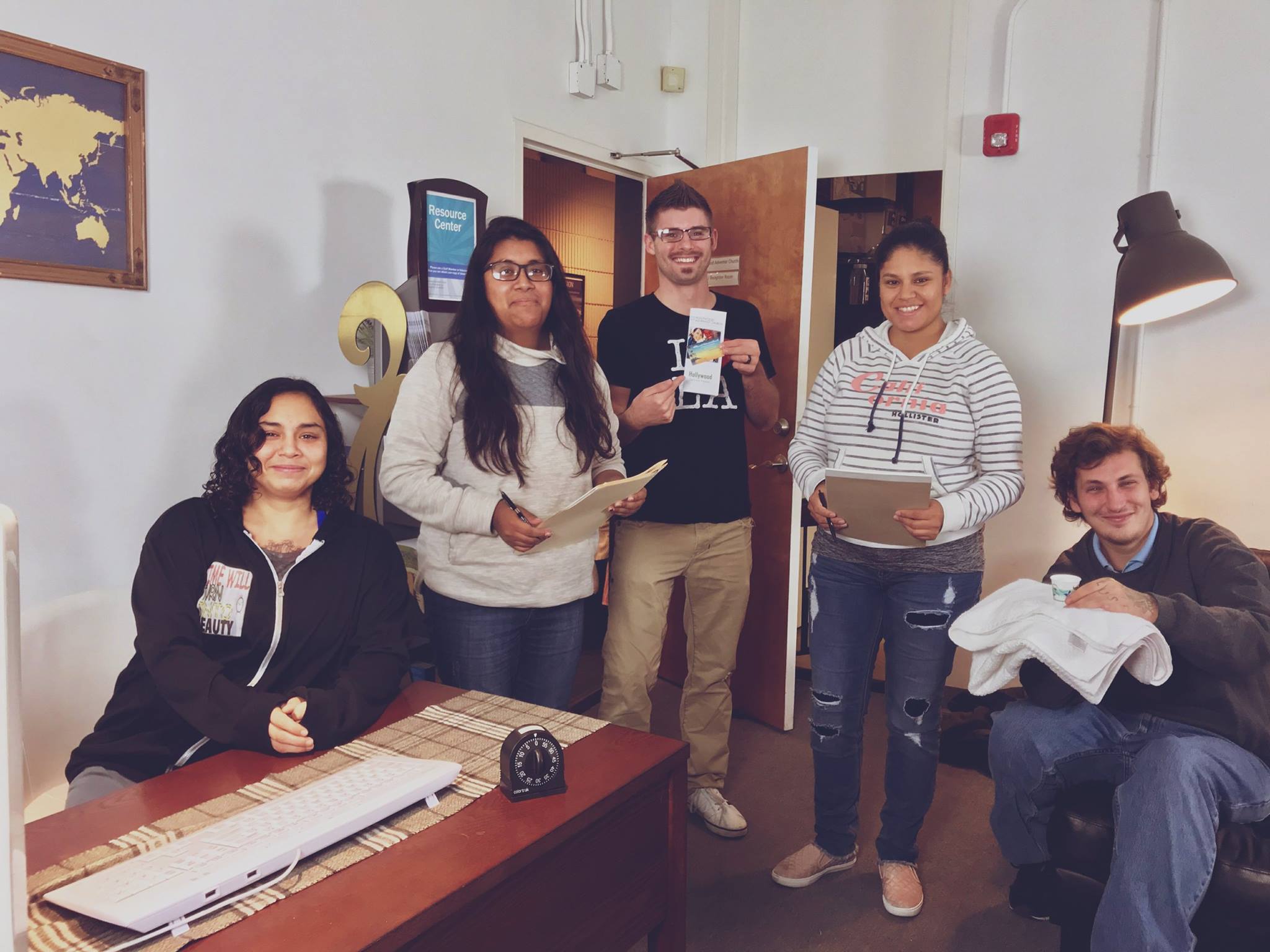
A Program Born on the Sidewalk
In those early years, Andrew served as Operations Director for the church. One day, while speaking with a few unhoused neighbors living along the freeway, they told him how hard it was to access running water. The church, it turned out, had two unused dressing rooms with showers.
“I told them to come in during office hours,” Andrew says. “We weren’t trying to start a shower program. I was just trying to help people I had spoken to.”
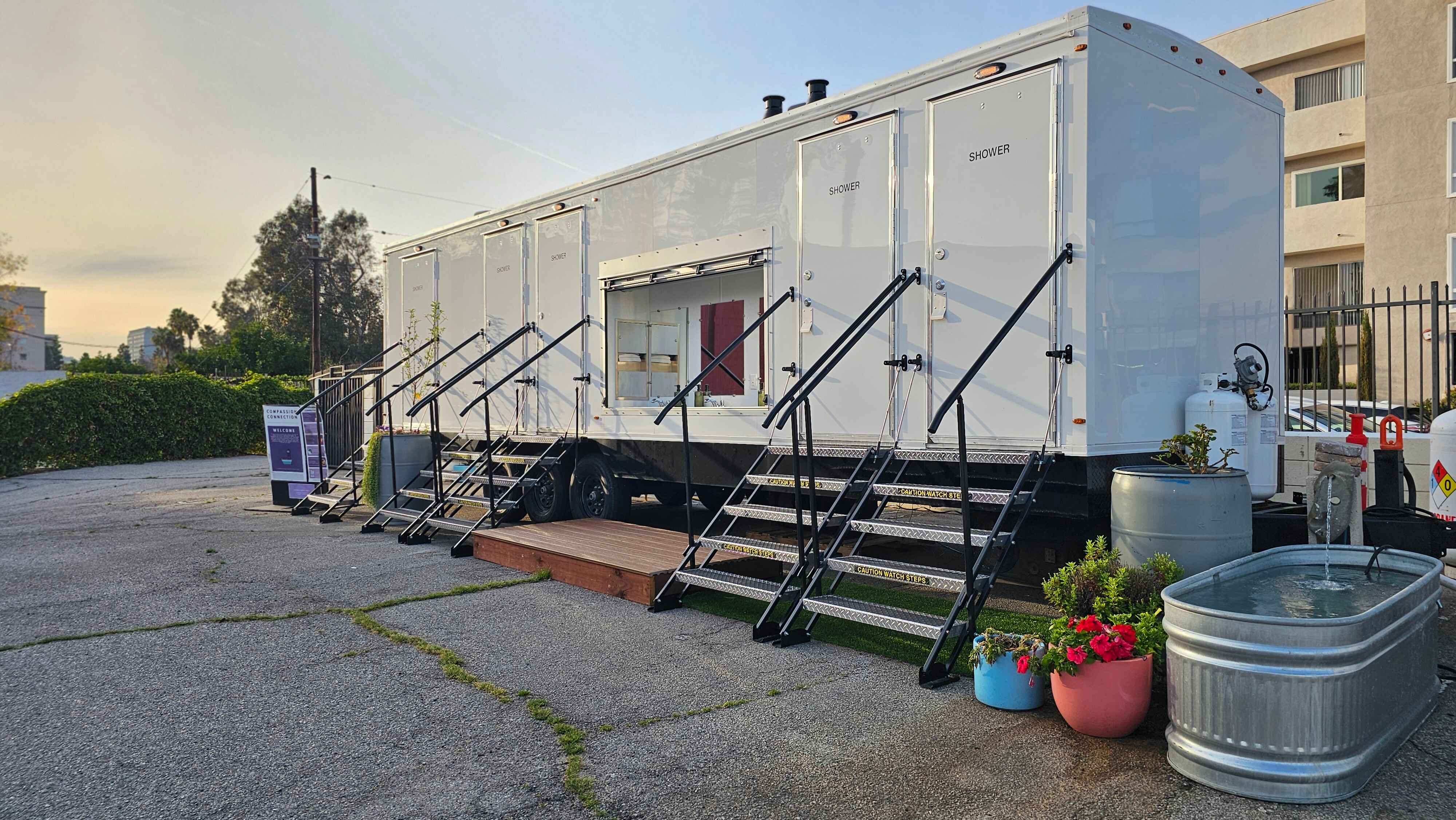
Word spread quickly. The ad-hoc system of color-coded towels and informal check-ins soon grew beyond what Andrew could manage on his own. As the need escalated, so did his response. “I had no experience in social services,” he says. “So I started reaching out for help.”
He leaned on relationships with nearby organizations like My Friend’s Place to learn best practices, eventually transitioning to a more structured day-shelter model. “We opened up the church lobby,” he recalls, “let people charge phones, and sign up for showers on paper.”
But it wasn’t perfect. The day-shelter format became chaotic, with interpersonal conflicts, limited showers, and long wait times. “I felt like a club bouncer,” Andrew admits. “And I realized we needed a better system.”
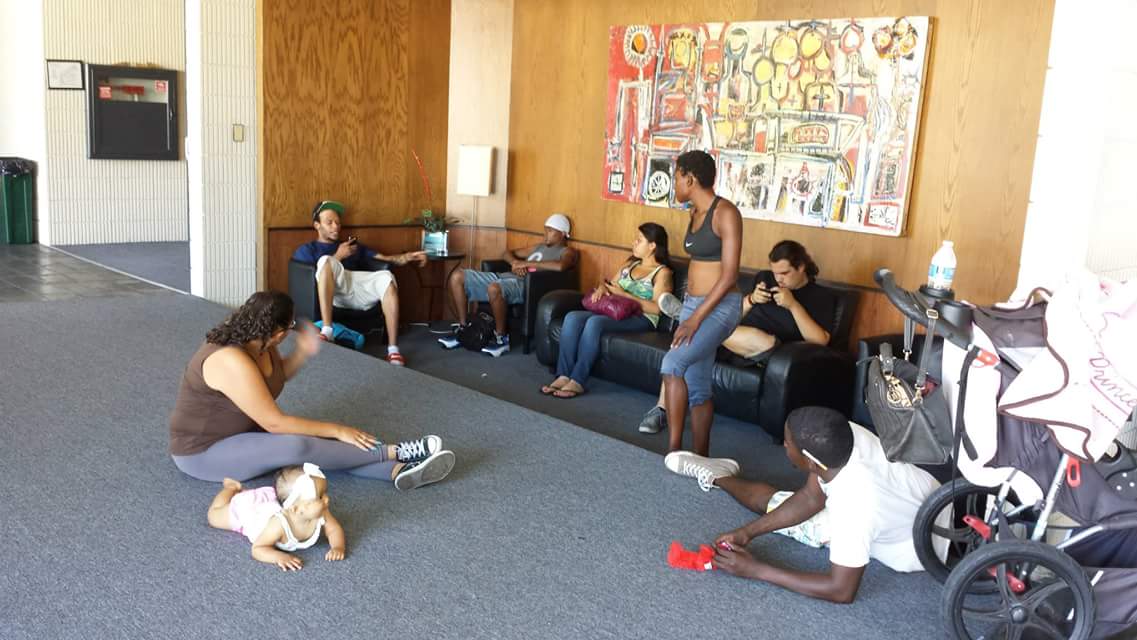
Spa-Inspired, Appointment-Based Strategy
That better system came from an unlikely source: Andrew’s teenage job delivering flowers to high-end salons and spas. Drawing from that world, he decided to launch Compassion Connection much like a personal care business. “Salons book appointments,” he reasoned. “Why couldn’t we?”
After transitioning to an online and phone-based scheduling system, shower capacity doubled almost overnight—from 15 per day to more than 30. Wait times dropped. Conflicts disappeared.
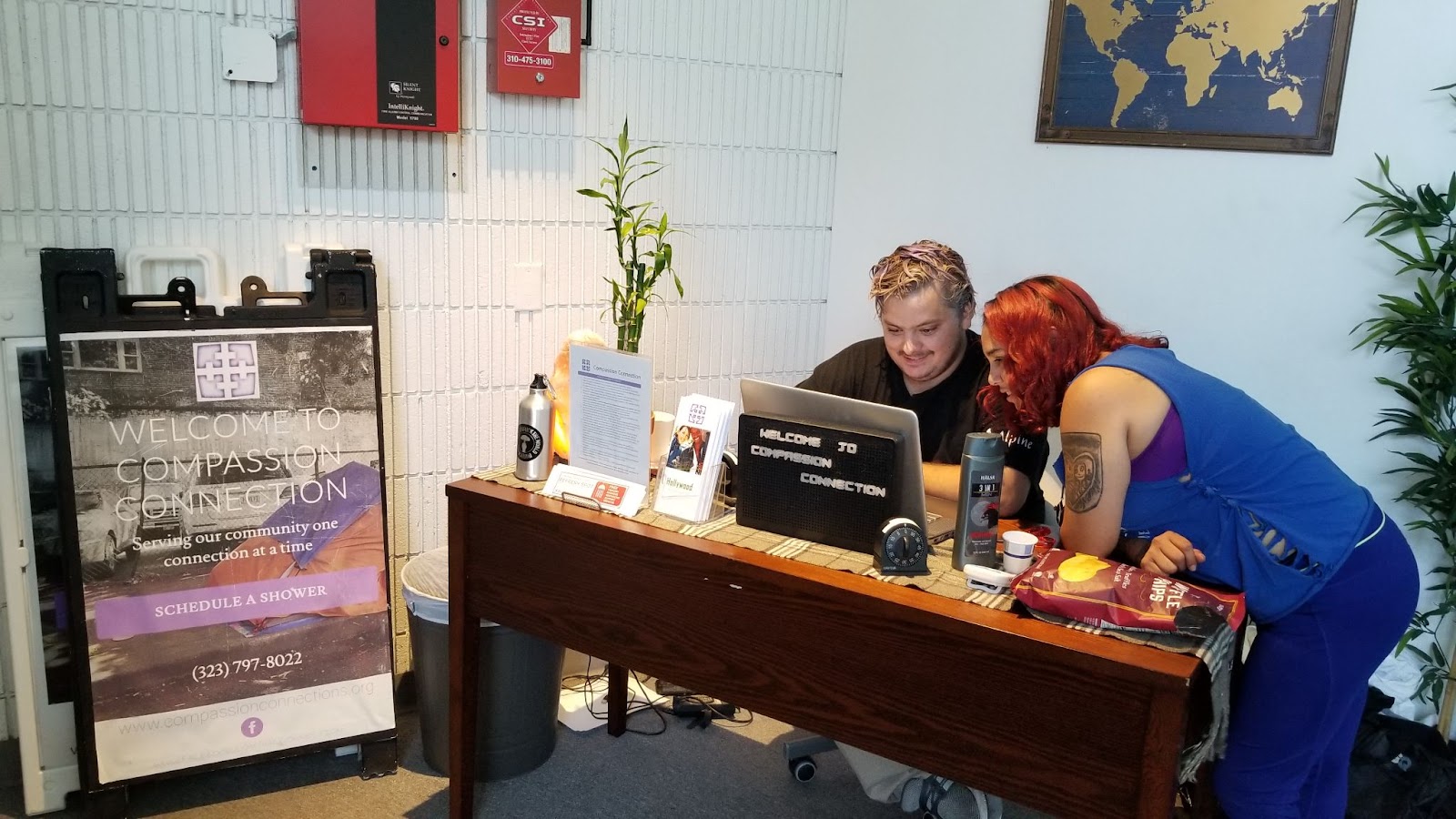
That innovative model became the foundation of Compassion Connections’ explosive growth. In partnership with The Shower of Hope, the church added a mobile trailer in 2018 to help meet the soaring demand.
In 2020, a seven-stall trailer donated by Kohler brought their total number of showers offered to 1,200 a month, especially appreciated by low-income workers whose gym memberships or housing had vanished during COVID.
After Andrew secured a $150,000 grant from United Way in 2023 — originally earmarked for laundry services — he successfully lobbied to redirect the grant toward building a five-stall shower trailer when Kohler needed their trailer back on the East Coast. The new trailer launched in January 2025 and now anchors Compassion Connection’s expanded campus, serving over 60 people a day, two days a week.
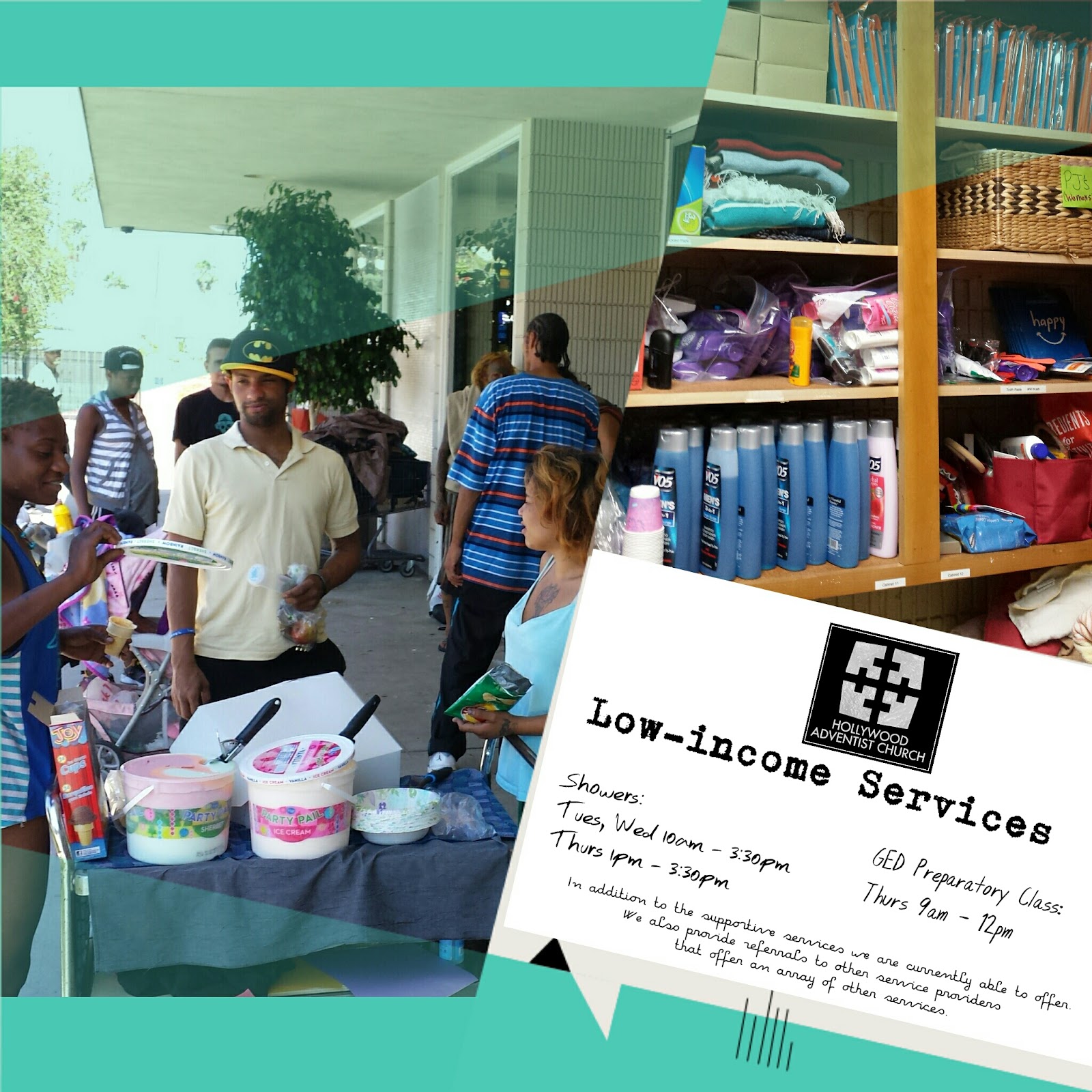
Building the Next Chapter: The Hollywood Community Hub
All the while, Andrew has advocated relentlessly for what he recognized as a great need in Hollywood: an integrated, street-level resource hub. Andrew points to support from Hollywood 4WRD and coalition partners like Council District 13 and Homeless Health Care Los Angeles (the team behind Skid Row’s Refresh Spot), for helping his vision become a reality.
Set to launch this fall, the Hollywood Resource Hub will provide coordinated access to showers, laundry, clothing, meals, housing navigation, and case management and intake services. Even more critically, the new Hub will offer Hollywood a new Access Center, especially needed after the recent closing of several local access centers.
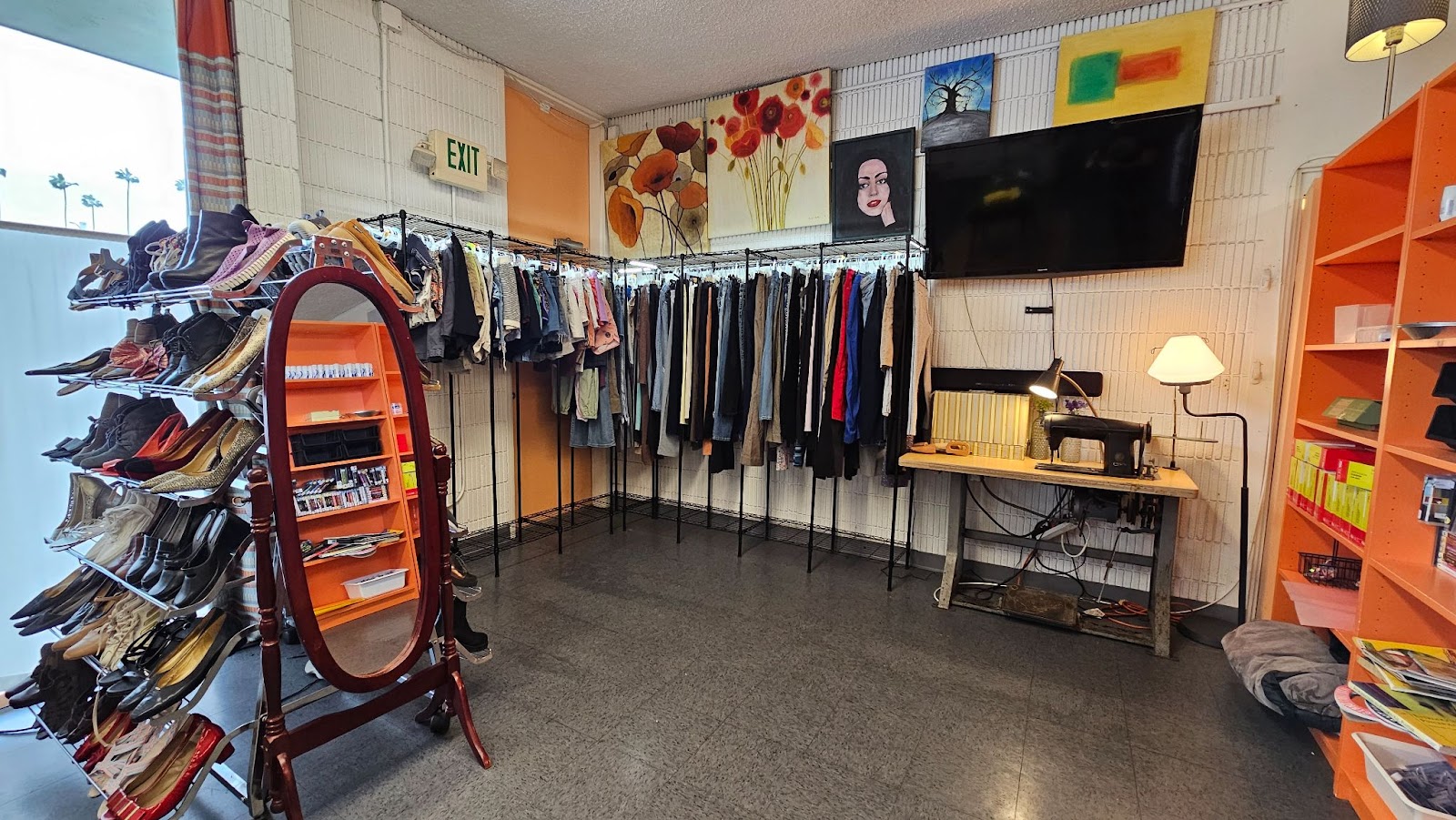
A Call for Community Support
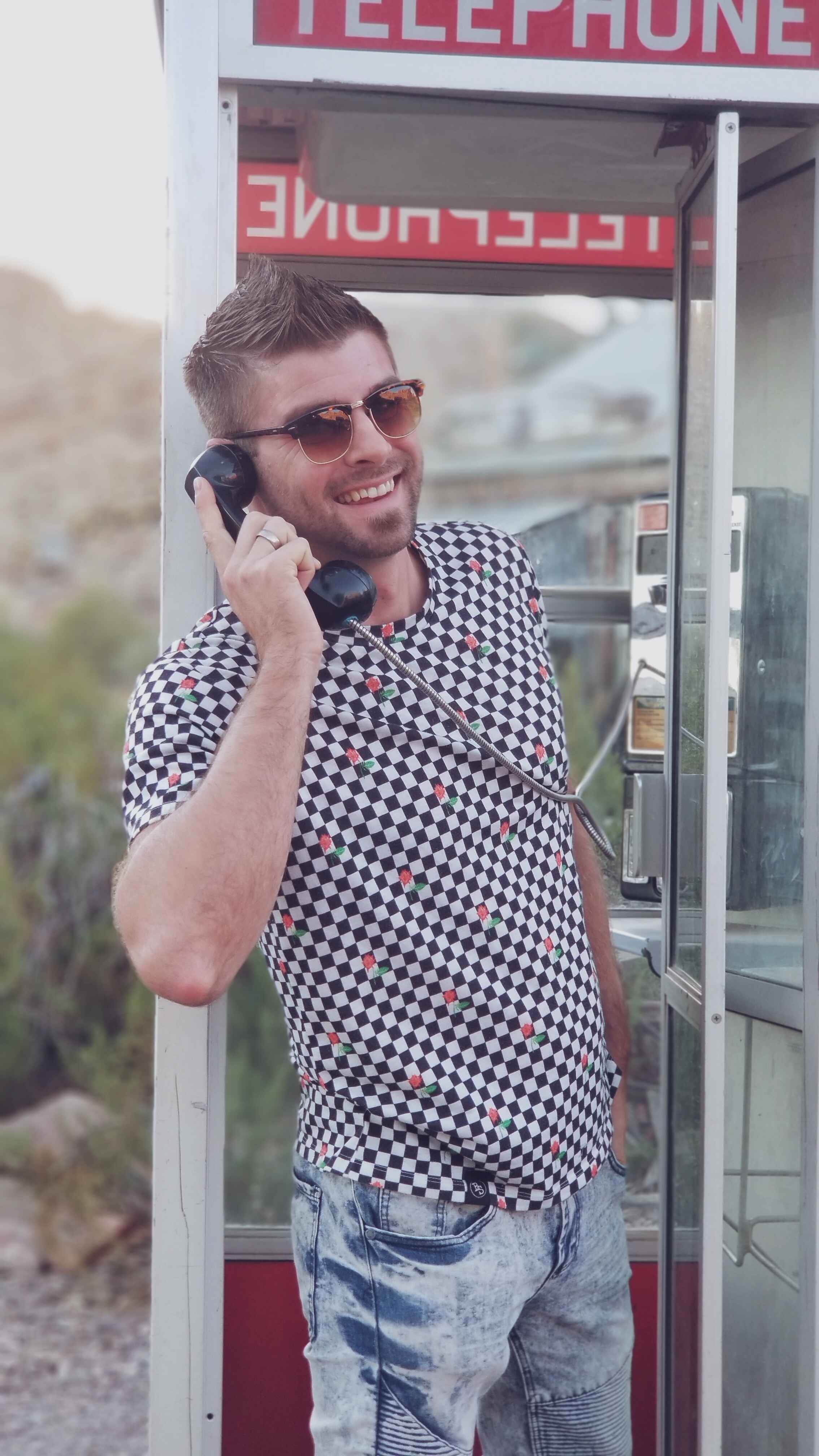
Though formal volunteer roles are limited due to staffing constraints, there’s one way Andrew says the Hollywood 4WRD community can help right now: donate clean, quality clothing.
“We go through a full SUV’s worth of clothes every week. We’ve used up truckloads. We always need more.”
Donations can be scheduled through the Compassion Connection website.
As Andrew puts it: “It’s not about me. It’s about listening to what people need and meeting them with dignity. And it doesn’t happen alone — we’ve only gotten this far by leveraging the network. That’s what Hollywood 4WRD does best.”
—-----------------------------------------------
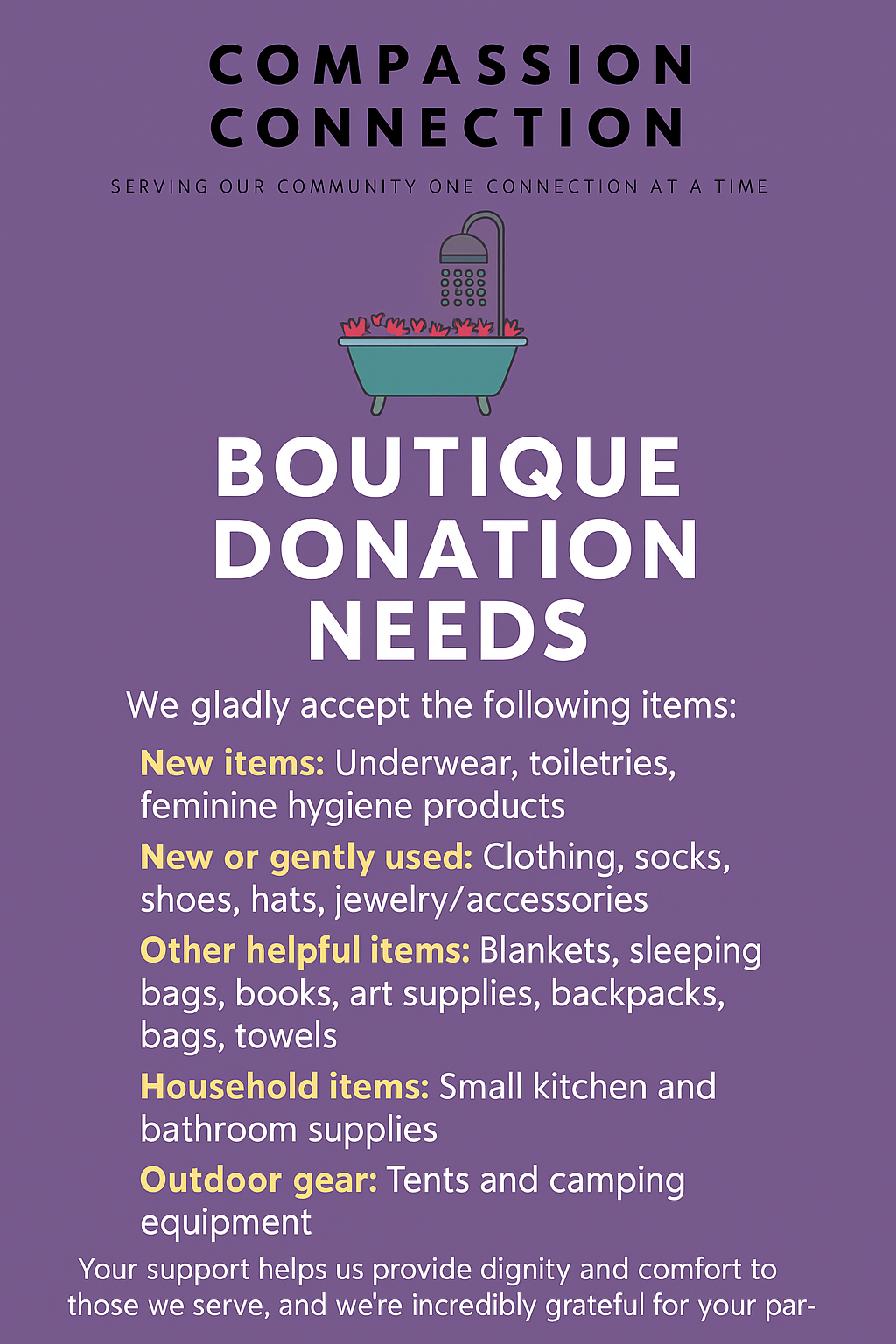
How to support Compassion Connections:
- Sign up HERE to volunteer: volunteer shifts run from 9 AM to 3 PM, there are multiple areas where you can make a meaningful impact. Please note that these shifts may involve standing for extended periods, so we encourage you to wear comfortable footwear and dress accordingly.
- Sign up HERE to donate: donations help Compassion Connection cover operational costs and provide services. You can also donate physical items such as new and gently used shirts, pants, jackets, shoes, accessories, blankets, sleeping bags, camping equipment, and towels. They also accept new socks, underwear, travel tooth brush kits (with a brush and tooth paste), bar soap, body wash/shampoo, female products, razors, and wash cloths.



